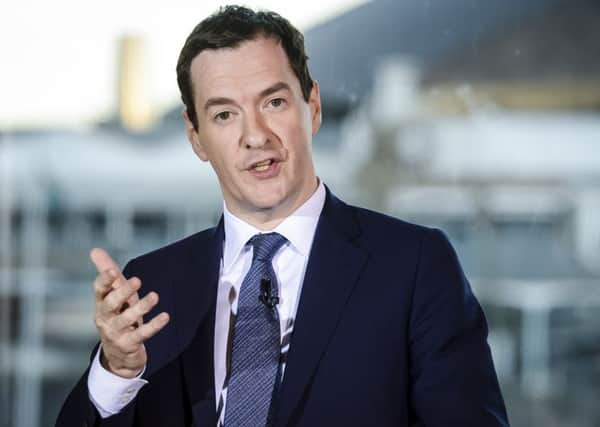YP Comment: Time to put the economy first. Problems mounting for George Osborne.


Yet the outlook for the Chancellor – and British economy – is looking bleaker with each passing day. Growth forecasts have been downgraded; China’s sudden slump is crucifying the UK steel industry and now the Institute of Fiscal Studies is warning that Mr Osborne will have to impose large tax rises or another round of spending cuts if he is to balance the books by 2019-20.
Having been excused by the electorate for failing to meet his economic targets in the last Parliament because he had inherited such a financial mess, it will be deeply damaging to Mr Osborne’s reputation if he has to recalibrate his strategy. He has staked his reputation on being the Iron Chancellor and he can’t keep blaming his Labour predecessors for Britain’s sluggish recovery – they’ve been out of office since 2010.
Advertisement
Hide AdAdvertisement
Hide AdHowever the fact that the Chancellor is already allowing town halls and crime commissioners to raise council tax bills to pay for improvements in social care, and additional police officers, backs up the IFS assertion that he is running out of wriggle-room – the Tories won power six years ago on the back of promises to stop the kind of above-inflation increases which will be introduced this April.
Of course it would be foolish to write off Mr Osborne – his durability is proven and he did bounce back from his “omnishambles” budget of 2012. Yet, while he remains the Tory party’s pre-eminent political strategist, he is employed by this country to run the public finances. Perhaps he needs to spend more time on the economy, and less on setting traps for his opponents or jaunts like his ill-advised trip to America’s Superbowl which is co-sponsored by, amongst others, Google whose own tax affairs in the UK leave so much to be desired.
Flooding folly: Where is the Government’s plan?
SIX weeks after York was submerged by so much filthy floodwater, much of the city has, thankfully, returned to normal. Yet, for those whose homes, businesses and shops were ruined, the nightmare continues.
As such, today’s launch of the VisitEngland‘s £1m #lovethenorth marketing campaign could not be more timely. Backed by transport operators like Virgin Trains which is offering discounted fares to and from flood-hit destinations, the aim is to demonstrate that Yorkshire, Lancashire and Cumbria – the three counties that suffered the greatest damage – are very much open for business.
Advertisement
Hide AdAdvertisement
Hide AdIt’s an important message – York’s whole economy, for example, revolves around tourism with new figures showing that the historic city welcomed 6.8m visitors last year and that the hospitality sector now supports 20,300 jobs, a six per cent increase on 2014. If families in other parts of the UK think, erroneously, that iconic attractions like York Minster or the National Railway Museum are closed, the whole area pays the price because of lost trade.
However these initiatives do not excuse the Government’s betrayal of Yorkshire’s flooding victims. Two weeks ago, The Yorkshire Post published an open letter to David Cameron which challenged the Prime Minister over five key issues. A fortnight later, and 10 Downing Street have still not had the courtesy to reply. Yet, unless the Government has the foresight to look again at its flood-prevention strategy which is about as water-tight as a kitchen colander, it won’t be long before locations like York are flooded again – and back to square one. Is that what Ministers want? It appears so.
Out in the cold. Heat is on energy suppliers
WHEN will they ever learn? Despite the sales tactics being pursued by the “big six” energy providers continuing to leave much to be desired, firms like ScottishPower and SSE want the rules relaxed on cold calling.
They should think again. Until this industry cleans up its act, and proves that it is no longer exploiting the benevolence of consumers and especially those who cannot comprehend the small-print of the deals on offer, existing safeguards should remain in place.
Advertisement
Hide AdAdvertisement
Hide AdNot only do energy suppliers need to show that households are offered the best tariff as a matter of routine, but they also need to overhaul their complaints procedures. If these companies focused on improving their customer service, they might find that they win back customers off their rivals without any rules having to be relaxed.